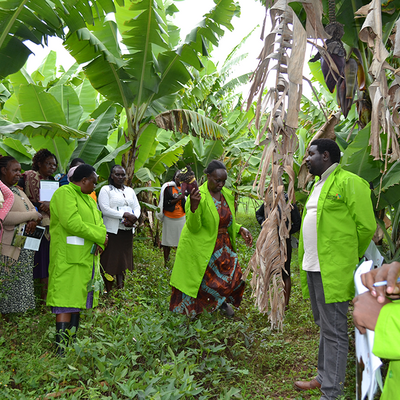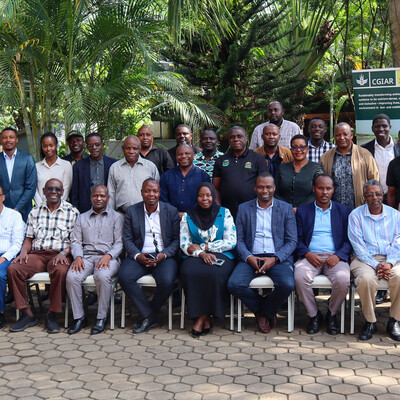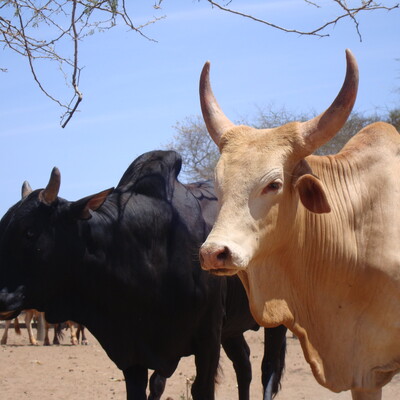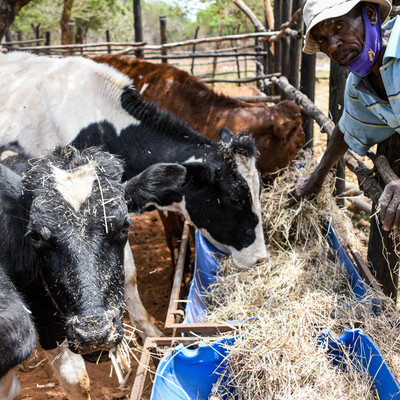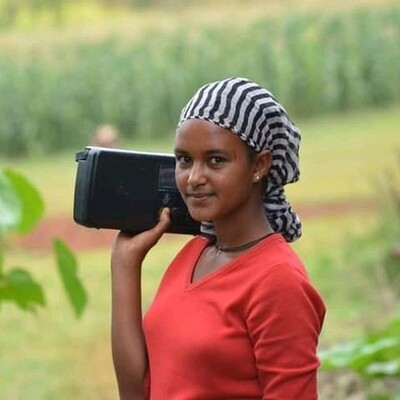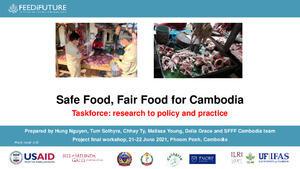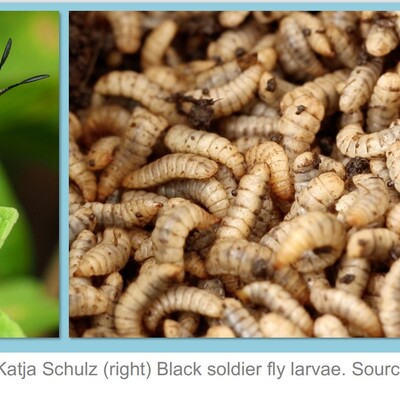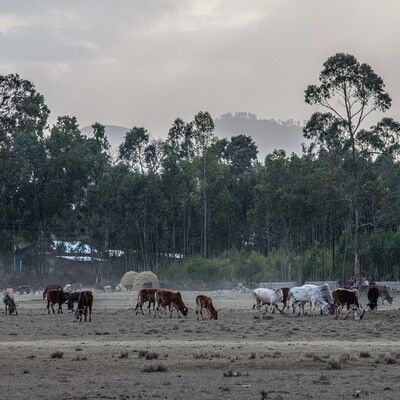

Business-to-business workshops promote technology uptake among agripreneurs in Tanzania
As part of efforts to enhance sustainable access to livestock inputs and services, the International Livestock Research Institute (ILRI) and partners in Tanzania are collaborating to equip youth and women with entrepreneurial skills and digital tool kits. The objective is to establish anchors for more widespread benefits across society.
Under the Sustainable Animal Productivity for Livelihoods, Nutrition and Gender Inclusion (SAPLING) Initiative, the institute, alongside the Tanzania Livestock Research Institute (TALIRI) and Kuza Biashara, has engaged youth and women in capacity building and a series of business-to-business (B2B) workshops since March 2024. Subsequent physical B2B workshops were held in May and October 2024, in addition to several virtual engagements.
Amos Omore, the SAPLING lead and ILRI’s country representative in Tanzania, highlights the need to promote greater adoption of scale-ready innovations involving bundled inputs and services, including breeding, feeds, forages and animal health. The use of innovative delivery models and the creation of linkages between farmers, agripreneurs and larger-scale service providers are promising entry points for promoting technology uptake and enhancing productivity. Digital tools are providing new opportunities in this effort.
B2B enhances extension service delivery without significant government investment. It translates to a win-win for agripreneurs, input suppliers and farmers. Agripreneurs benefit from capacity building and linkages to deliver bundled inputs and services to farmers cost-effectively, whereas the linked suppliers benefit from aggregated demand and more sales.
‘We really want to work in a collaboration between researchers, agripreneurs, distributors and livestock keepers. I believe that if we have a common platform that links us, it will be easier to identify gaps and solutions,’ says Godfrey Ngoteya, the SAPLING field coordinator in Tanzania.
Kuza Biashara offers a platform called ‘One Network’, a digital record-keeping tool that enables agripreneurs to register their customers, suppliers and buyers, as well as track their business transactions and generate reports and financial statements. It also enables communication and knowledge sharing among the stakeholders.
The B2B workshops also served as a vital information-sharing avenue for agripreneurs, providing them with a unique opportunity to connect and learn from each other. This promoted business growth, income generation and improvement of livelihoods through livestock-related businesses.
Obeid Kiariro from ASAS Group of Companies (AFRIFARM) noted that the workshops provided him with a useful learning opportunity. Through the B2B workshop experience, he said, AFRIFARM, which is headquartered in the Iringa region with branches in Dar es Salaam, Tanga and Arusha, interacted with agripreneurs with links to a wider network of livestock keepers.
‘Meeting with these people has revealed the significant potential for expanding our customer base and increasing sales,’ said Kiariro.
The second physical B2B meeting in May 2024 brought together graduate agripreneurs to discuss key issues that emerged and to generate insights for improvement. Commending the incubation program for transforming their behaviours and mindsets regarding business management, the graduates appreciated the practical and easy-to-understand format of the training, as well as the provision for remote learning.
Daudi Kisakeni, one of the beneficiaries of the initiative attributed the effective running of his businesses to the One Network platform, which he used to maintain records and avoid unnecessary expenses and losses. He said he had shared the teachings from the workshops with his wife and business partner, and they were all reaping the benefits.
On the other hand, Kassiana Petro Matonya, an agripreneur from Korogwe District Council, suggested rearranging the topics in the sessions to enable trainees grasp the concepts better. For example, he recommended covering goal setting, followed by business planning, budget planning and record-keeping, before moving on to how to start a business.
The agripreneurs' testimonials shed light on the transformative impact of the One Network platform on their businesses. From improved record-keeping to expanded customer bases and increased income, agripreneurs have leveraged digital tools to enhance their services and make a positive impact on their communities. Challenges such as poor network connectivity, limited capital and the need for an entrepreneurial mindset have been identified. However, the initiative's adaptability is clear in the solutions implemented to address these obstacles, such as the distribution in October 2024 of digital extension kits known as ‘rukas’ that do not rely on live internet access.
The SAPLING Initiative, implemented as part of the CGIAR 2030 Research and Innovation Strategy in Tanga and Kilimanjaro regions of Tanzania, provides ongoing monitoring, training and support through ‘dedicated coaches’ to ensure the success and sustainability of the program and agripreneurs’ businesses. By harnessing the power of technology, building strong networks and fostering an entrepreneurial spirit, the SAPLING Initiative is driving positive change in Tanzania's agricultural sector, ultimately contributing to livelihood improvements, nutrition advancements and gender inclusion.
You may also like
Related Publications

Classification of donkey systems in Ethiopia
- Asteraye, Girma B.
- Jobling, R.
- Jemberu, Wudu T.
- Pinchbeck, G.
- Knight-Jones, Theodore J.D.
- Critchlow, R.
- Rushton, Jonathan
- Chaters, G.L.

Index-based Livestock insurance to support pastoralists against droughts
- Jensen, Nathaniel D.
- Barrett, Christopher B.
- Mude, Andrew G.
- Banerjee, Rupsha R.
- Noritomo, Yuma
- Shikuku, Kelvin Mashisia
- Takahashi, Kazushi
- Teufel, Nils

Sustainable Intensification in Crop-Livestock Systems: ILRI’s Approach and Experience
- Mekonnen, Kindu
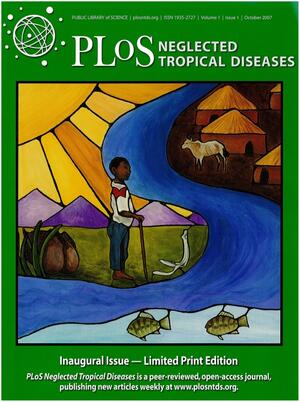
Sero-epidemiology of Coxiella burnetii in livestock and humans in Isiolo county Kenya
- Mutisya, W.M.
- Akoko, James M.
- Mwatondo, Athman
- Muturi, Mathew
- Nthiwa, D.
- Abkallo, Hussein
- Nyamota, Richard
- Wachira, T.
- Gathura, P.
- Bett, Bernard K.





